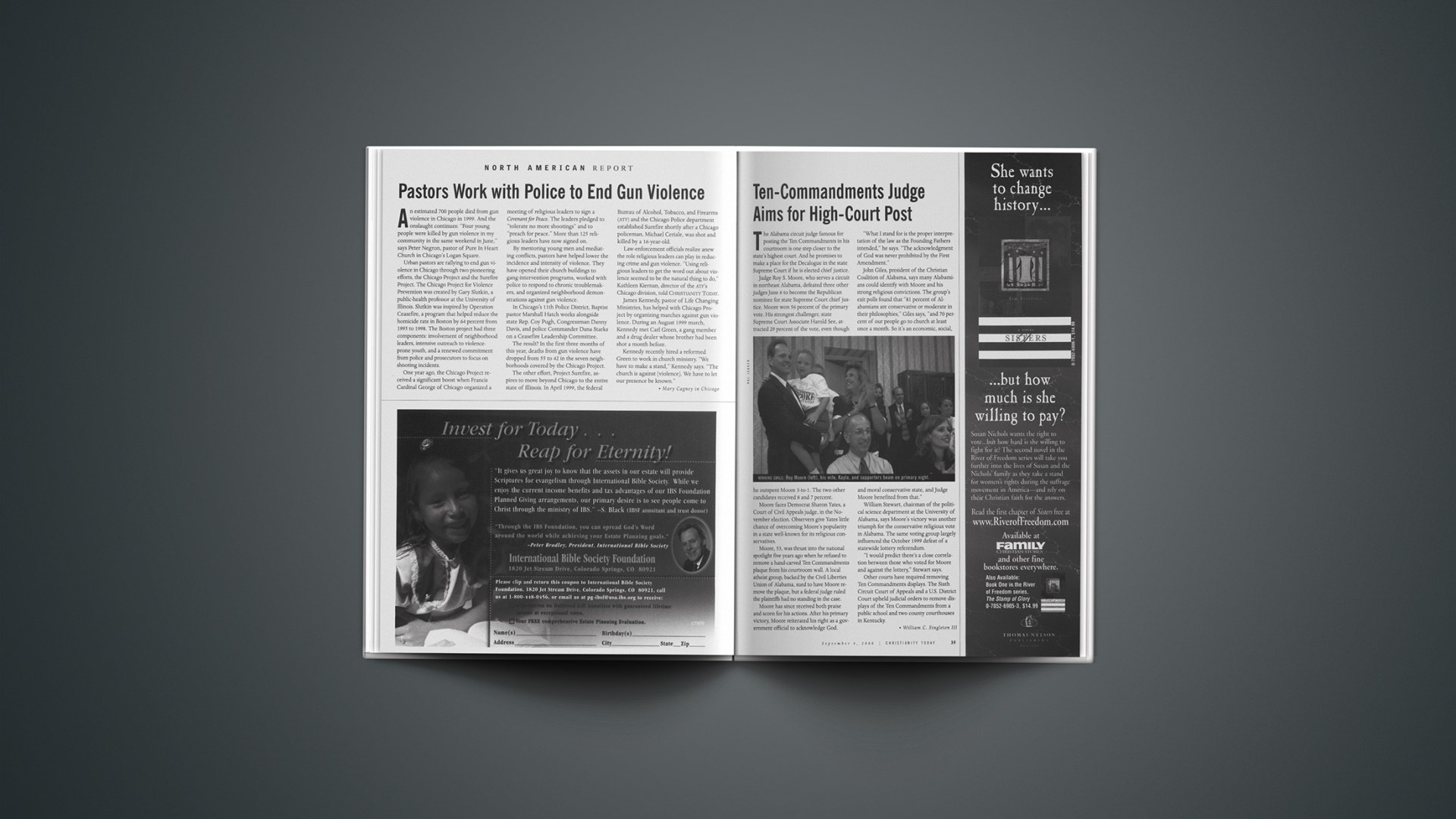An estimated 700 people died from gun violence in Chicago in 1999. And the onslaught continues: “Four young people were killed by gun violence in my community in the same weekend in June,” says Peter Negron, pastor of Pure In Heart Church in Chicago’s Logan Square. Urban pastors are rallying to end gun violence in Chicago through two pioneering efforts, the Chicago Project and the Surefire Project. The Chicago Project for Violence Prevention was created by Gary Slutkin, a public-health professor at the University of Illinois. Slutkin was inspired by Operation Ceasefire, a program that helped reduce the homicide rate in Boston by 64 percent from 1995 to 1998. The Boston project had three components: involvement of neighborhood leaders, intensive outreach to violence-prone youth, and a renewed commitment from police and prosecutors to focus on shooting incidents. One year ago, the Chicago Project received a significant boost when Francis Cardinal George of Chicago organized a meeting of religious leaders to sign a Covenant for Peace. The leaders pledged to “tolerate no more shootings” and to “preach for peace.” More than 125 religious leaders have now signed on. By mentoring young men and mediating conflicts, pastors have helped lower the incidence and intensity of violence. They have opened their church buildings to gang-intervention programs, worked with police to respond to chronic troublemakers, and organized neighborhood demonstrations against gun violence. In Chicago’s 11th Police District, Baptist pastor Marshall Hatch works alongside state Rep. Coy Pugh, Congressman Danny Davis, and police Commander Dana Starks on a Ceasefire Leadership Committee.The result? In the first three months of this year, deaths from gun violence have dropped from 55 to 42 in the seven neighborhoods covered by the Chicago Project. The other effort, Project Surefire, aspires to move beyond Chicago to the entire state of Illinois. In April 1999, the federal Bureau of Alcohol, Tobacco, and Firearms (ATF) and the Chicago Police department established Surefire shortly after a Chicago policeman, Michael Ceriale, was shot and killed by a 16-year-old. Law-enforcement officials realize anew the role religious leaders can play in reducing crime and gun violence. “Using religious leaders to get the word out about violence seemed to be the natural thing to do,” Kathleen Kiernan, director of the ATF’s Chicago division, told Christianity Today. James Kennedy, pastor of Life Changing Ministries, has helped with Chicago Project by organizing marches against gun violence. During an August 1999 march, Kennedy met Carl Green, a gang member and a drug dealer whose brother had been shot a month before.Kennedy recently hired a reformed Green to work in church ministry. “We have to make a stand,” Kennedy says. “The church is against [violence]. We have to let our presence be known.”
Copyright © 2000 Christianity Today. Click for reprint information.










